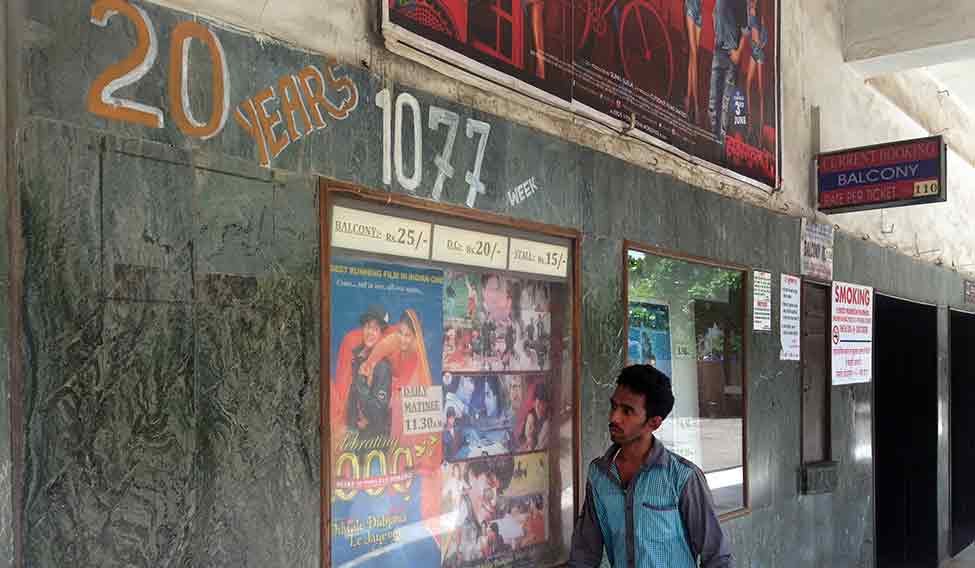One of the everlasting themes in Indian cinema is the rags to riches story, and often vice versa. This is Bollywood’s inspiration from itself. A single film can take its lead actor to the rarefied league of superstar and one big flop is enough to reduce the filmmaker to penury and send the actor to obscurity. In Mumbai’s tinsel town, you are only as good as your last hit.
But what and who succeeds in Bollywood remains one of India’s greatest unpredictables, which explains why stars and filmmakers trek with offerings to Tirupati and Ajmer before big-ticket releases and cross their fingers on the opening Friday. It also explains the recent trend of weird spellings, courtesy numerology. Spelling cool as kool may give you a modest hit once, it’s no guarantee the sequel will work.
In an industry that prvoduces around 200 films a year, the established hit-flop ratio is 20:80, but that’s as far as the formula works. Big stars with stellar scripts can drag a film into debt while a run-of-the-mill offering becomes the matinee favourite. “If one could predict what will click, why would anyone make a flop?’’ says film writer and author Pradeep Chandra, who has observed the industry for over three decades.
Manmohan Desai thought he had worked out the masala formula in the 70s and 80s—the right amount of comedy, tragedy, drama and songs. It worked well for him from Amar Akbar Anthony through Naseeb, Coolie and Mard, catapulting Amitabh Bachchan into superstardom. But a “formula’’ can only work for that long, and it ultimately resulted in Ganga Jamuna Saraswati. At what time the public decides to reject the formula remains unpredictable. Incidentally, this film also put to rest a theory that a film with the name Ganga in its title would be an assured hit. Right from Jis Des Mein Ganga Behti Hai through Ganga Jamuna to Ram Teri Ganga Maili, the word Ganga did seem like a mantra of success.
A big star alone doesn’t a hit make, that’s established. Else why would method actor Aamir Khan flop in Dhoom and Talaash, despite the homework he reportedly puts in? Script, they say, is king. But take a look at the scripts of some Hindi blockbusters and compare them with those of certain flops, and you’ll begin wondering all over again.
Freshness, by way of faces, story lines and treatment, is always welcome, but it doesn’t ensure anything. For every first-film wonders like Aamir Khan and Hrithik Roshan are scores who came and disappeared without making any imprint on the cinemascape.
Good music is always something to fall back on, the 60s is still remembered as the decade of melody. But a good song is no guarantee of a hit, either. Remember the number Chalte chalte mere yeh geet yaad rakhna. Now try recalling the film or the hero’s name.
So is it smart packaging and an advertising blitzkrieg that does the trick? Filmmakers, in their desire to enter the 100-crore club, nowadays scramble together music sales, DVD sales, television rights and numerous other verticals to arrive at the coveted figure. They’ll even show ‘houseful’ signs at limited seater multiplexes and loudly proclaim to have made a hit. Because you are only as good as your last hit. But everyone knows that a picture is a hit when front benches are crammed, wolf whistles rent the air and black marketeers outside the theatre do brisk business. It’s a hit when it spawns a style trend and you see every other girl wearing a white-and-green Madhuri style lehenga. When everyone from the roadside tapori to the swank collegian spout one-liners from the film. Kitne aadmi the? Or when the most banal lyrics reach cult status. Aati kya khandala? Only kismet can assure that, but kismet in Bollywood is more elusive than the snitch in quidditch.







